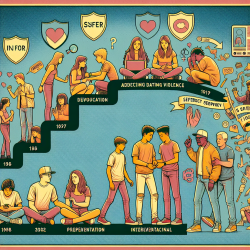As an occupational therapist working in an educational setting, you know how crucial Individualized Education Program (IEP) planning and meetings are for the success of your students. These meetings are not just formalities; they are pivotal moments where you can make a significant impact on a child's educational journey. But how can we make these meetings more effective and collaborative? Let's dive into some strategies that can help you unlock the power of IEP planning.
1. Embrace the Power of Teamwork
IEP meetings are a team effort. They involve teachers, parents, administrators, and various therapists, including occupational and speech therapists. When everyone collaborates effectively, the outcomes for the student can be truly transformative. Here are some tips to foster better teamwork:
- Open Communication: Ensure that all team members are on the same page by maintaining open lines of communication. Share your observations and listen to others' insights.
- Respect Different Perspectives: Each team member brings a unique perspective. Respect and value each person's input, and consider how their insights can enhance the IEP.
- Regular Check-ins: Schedule regular check-ins to discuss progress and any necessary adjustments to the IEP. This keeps everyone aligned and focused on the student's goals.
2. Leverage Technology for Better Outcomes
In today's digital age, technology can be a game-changer in IEP planning and implementation. Online therapy services, such as those provided by TinyEYE, can bridge gaps and offer consistent support. Here's how technology can enhance your IEP meetings:
- Online Speech Therapy: For students who need speech therapy, online sessions can be incredibly effective. They offer flexibility and can be tailored to each student's needs.
- Digital Documentation: Use digital tools to document progress and share updates with the IEP team. This ensures that everyone has access to the latest information.
- Virtual Meetings: Virtual IEP meetings can be more convenient for all participants, especially when coordinating busy schedules. They also allow for the inclusion of specialists who may not be physically present.
3. Focus on Strengths, Not Just Needs
It's easy to get caught up in addressing a student's challenges, but don't forget to highlight their strengths. Focusing on strengths can boost a student's confidence and motivation. Here are some ways to incorporate a strengths-based approach:
- Identify Strengths Early: During assessments and evaluations, make a conscious effort to identify and document the student's strengths.
- Incorporate Strengths into Goals: Use the student's strengths to set achievable and motivating goals. This can make the IEP more engaging for the student.
- Celebrate Successes: Regularly celebrate the student's achievements, no matter how small. Positive reinforcement can lead to sustained progress.
4. Engage Parents as Partners
Parents are essential partners in the IEP process. Their insights and support can significantly influence the effectiveness of the plan. Here are some ways to engage parents more effectively:
- Build Trust: Establish a trusting relationship with parents by being transparent and empathetic. Listen to their concerns and involve them in decision-making.
- Provide Resources: Offer parents resources and strategies they can use at home to support their child's progress.
- Regular Updates: Keep parents informed with regular updates on their child's progress. This keeps them engaged and reassured that their child is receiving the best support.
5. Continuous Professional Development
Finally, never stop learning. Continuous professional development can help you stay updated on the latest strategies and tools for effective IEP planning. Attend workshops, webinars, and training sessions to enhance your skills and knowledge.
In conclusion, effective IEP planning and meetings are all about collaboration, leveraging technology, focusing on strengths, engaging parents, and continuous learning. By adopting these strategies, you can make a meaningful difference in the lives of your students. Remember, every IEP meeting is an opportunity to inspire and empower. Let's make the most of it!










